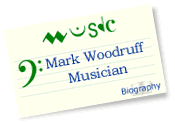

|
| Budgeting for music |
| A deeper, wider musical context |
| Only the greatest beauty will do |
| Music in every church |
| The
Church and a new music |
'Have nothing in your house which you do not know to be useful or believe to be beautiful' William Morris
I should say that there are some ideas in what I am going to say that come from a purely personal slant and one stream of ideas. You will have as many of your own that are equally as valid as mine. And I must admit at the beginning that I break a rule in speaking and thinking of music without our making music, and I regret I have no excuse.
An equal music?
'Bring us at our last awakening into the house and gate of heaven, to enter into that gate and dwell in that house, where there shall be no darkness nor dazzling, but one equal light; no noise nor silence, but one equal music.'
I guess I know what John Donne is getting at, but the thought of 'equal music' fills me with anxiety. It puts me in mind of Quam Dilecta, the tune to 'We love the place, O God', and Colours of Day, both pieces which Arthur Hutchings would have described as tunes in 'a perfect state of melodic collapse'.
For the purposes of our reflections this evening, to speak of 'equal music' worries me as much as saying 'only human', a phrase which directly confronts the two central doctrines of Christian belief - incarnation and resurrection. And there is a connection. Just as humanity, created in the image of God, displays the glory of the Lord with Christ who not only is 'robed in flesh our great high priest' but also new-creates our nature for rising to new life ('O how glorious and resplendent, fragile body, shalt thou be'), so music can be nothing less than an instance of the beauty of Christ. And this is not something to which we merely aspire in this vale of tears ('we feebly struggle, they in glory shine'): the glory of the only Son of the Father is an objective fact about the nature of humanity - nothing short of Christ's beauty will do for us. And I don't just mean 'Children of the heavenly King, as ye journey sweetly sing'. We want the beauty that overturns the tables in temples as well, and the devastating beauty St Peter beheld when the cock crew. Nothing short of the measure of the stature of the fullness of Christ - if a perfect man, then a perfect beauty. And with great respect to John Donne, this will not be an equal music.
It may have silence; it may have a strong tune. It may have a faint evocation or an all-engrossing river of sound, but it must be the most decisive composition.

And each one is an instrumentalist in this work of praise. No one is a soloist all the time. All players are needed for the concerted performance, and each plays a part essential to the complete work. It doesn't matter if most are untrained, while some have an aptitude that is long formed. No one actually lacks the skills even if latent, because the music in Christ's mind for his people to make composes each and all in a perfect arrangement of their best expressive and creative gifts, nothing less. You can say you are tone deaf, or you can be Bono, the devout churchgoing lead singer of U2. You can sing in a choir or even prefer not to sing, yet join in by listening to the music at church (after all, some people will be needed to play or sing the rests in Christ's music), but each must play their part to the full: 'Wherefore with my utmost art, I will sing thee and the cream of all my heart I will bring thee'.
It is a case of the widow's mite. The widow's two mites were everything she possessed. But to look at the church today, and the feel for our religion that is given in school, far from giving the full mite, we are the Pharisee who has proudly budgeted for a mere tithe.
About five years ago I was asked by a bishop what I would change and what I would alter about church music. There were two areas I suggested for remedy. The face lit up as he supposed there might be a simple solution. It was about the time of Canto Gregoriano, recordings of the monks of Silos in Spain singing at their mass and office. They weren't the best singers of Gregorian chant, but the genuine feel of contemplation and not performance on the CDs caught people's imagination and they stayed at the top of the classical charts for something like forty weeks. Statistically I expect that the overwhelming majority of purchasers were not practising Christians. For all I know they were people of good will, New Agers, or other spiritual seekers. I asked the bishop what was being done in London to tap into this vast surging demand for the 1500-year-old (at least) patrimony of western prayer music. Blank incomprehension. 'Where, my Lord,' I asked, 'could you guarantee you would never ever hear this music? Sunday morning in most Catholic and Anglican churches.' It was a terrible indictment, I submitted, of the church's detachment from its own musical living history, that the very foundations of sacred music have been privatised to the sitting rooms of people who cannot, in the corporate setting of the church, make the spiritual connections they are drawn. It is the musical equivalent of 'You are nearer God's heart in a garden'. The bishop thought my point was unrealistic, given contemporary tastes and parish resources.